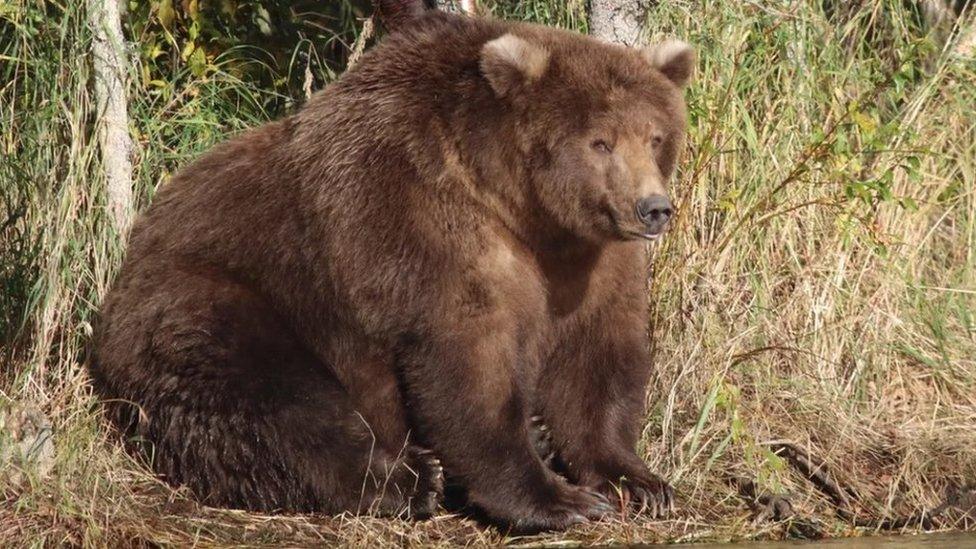Meet the 'fattest bear of the year'
- Published
- comments
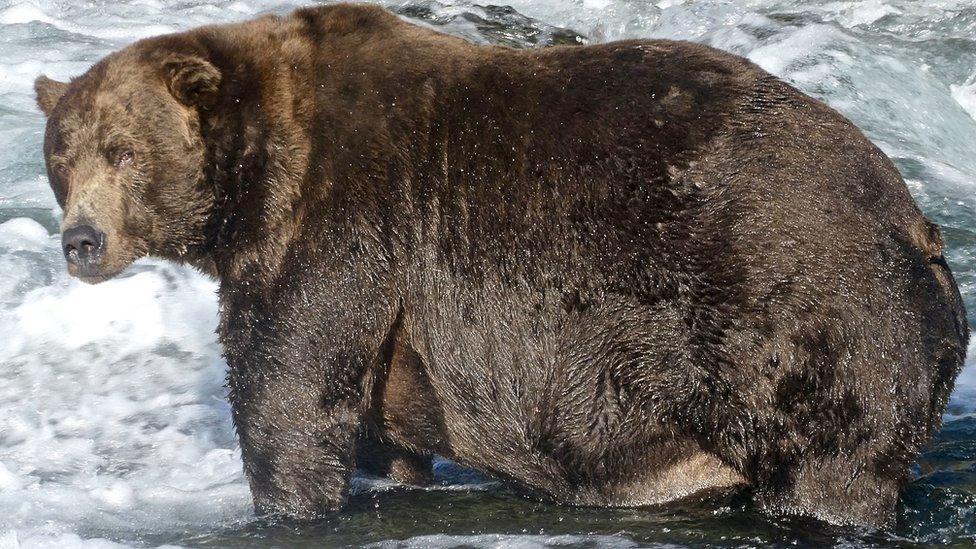
Rangers say it's a case of 'survival of the fattest' when it comes to the bears preparing to hibernate
Bear 747 - named after the Boeing 747 jumbo jet because he's so big - has been crowned the 'fattest bear of the year'.
Don't worry - it's not a bad title to have!
Super-sized 747 is one of over 2,200 brown bears which live in Alaska's Katmai National Park and Preserve in the United States.
Each year park rangers run the Fat Bear Week competition - people get to vote online for the fattest bear and it's all about celebrating how big they've got as they get ready to hibernate this winter.
During the winter months some animals hibernate - that means they spend them in a 'dormant state'.
Their normal physical functions are suspended or slowed down - a bit like being in a deep sleep.
It's a way for animals to reduce the amount of energy they use - and therefore the amount of food they need - during the coldest seasons.
Talking about 747's impressive size, the park said: "This year he really packed on the pounds, looking like he was fat enough to hibernate in July and yet continuing to eat until his belly seemed to drag along the ground by late September."
Brown bears don't eat or drink when they hibernate so they can lose a third of their body weight.
That's why during the summer they need to eat as much as they can to get ready, and to make sure they have enough fat to survive.
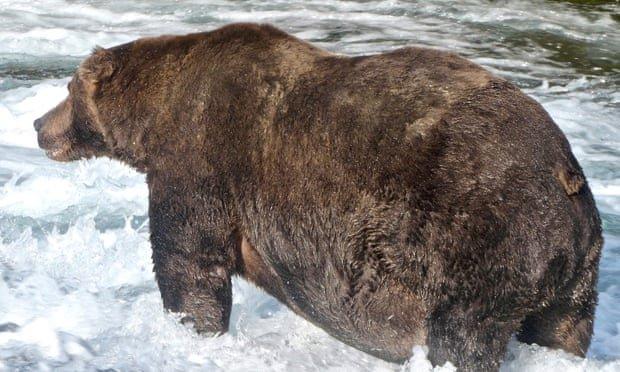
Brown bear 747 stands in a river hunting for salmon to fatten up before hibernation in Alaska
The park's Brooks River is a favourite spot for them to get together and hunt for food.
This year there was a record amount of salmon in the water which meant the bears had a lot more to eat.
There have also been a lot fewer visitors because of the coronavirus pandemic.
Ranger, Naomi Doak, said: "The combination of the big salmon run and fewer people, this has really handed the river to the bears."
- Published12 February 2020
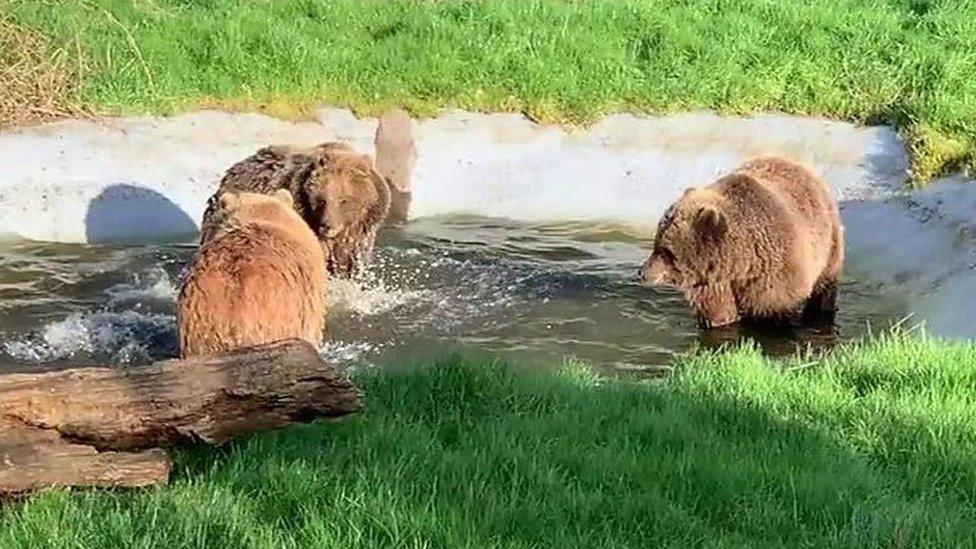
- Published9 October 2019
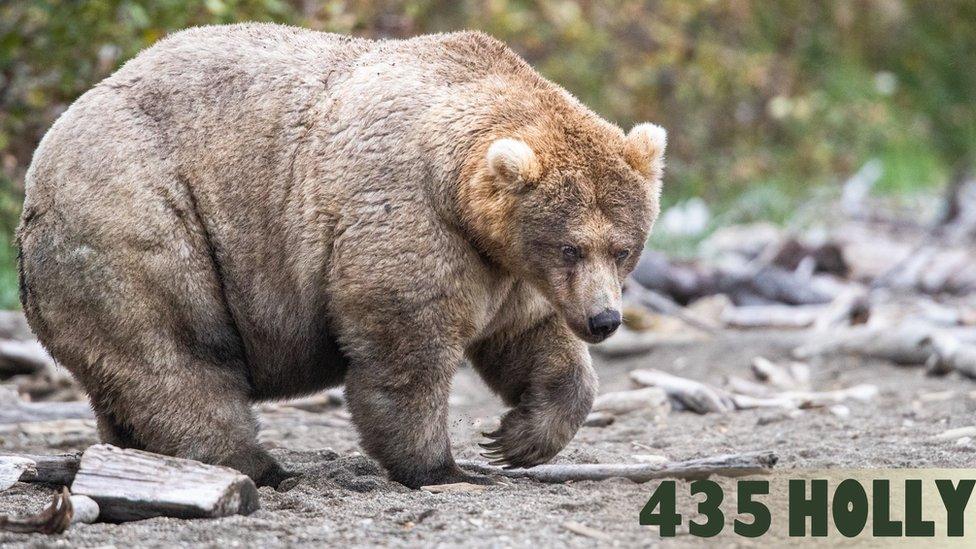
- Published11 October 2018
